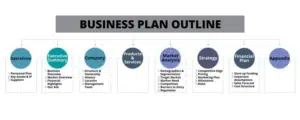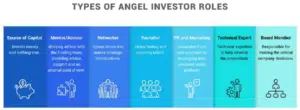Tips on Starting, Funding a New Business
Small businesses are being created now more than ever, thanks to people being laid off or furloughed during the COVID-19 pandemic and the advent of online tools aimed at helping budding entrepreneurs. In April 2021, roughly 500,000 people in the U.S. applied for new business applications, compared to just 300,000 in the same month of 2020, according to the Bureau of Labor Statistics.
While the current climate may make the decision to start your own business easier than ever before, it certainly doesn’t mean that starting a new business is easy. While creating your small business from scratch does start with a dream, a great idea and some funding, you’ll probably also need online training, business acumen and an understanding of some basic financial and marketing principles to get going.
Mapping Out Your Business
Whether you are launching a construction business, retail store, business services firm or an eCommerce site, before you even think about funding, you’ll need to produce a business plan.
A business plan is a specific outline of your business, what it will entail and how it will make money. If you plan to seek initial investors for your business, be it angel or venture cap investors or through crowdsourcing, you’re going to need one.

Source: Growthink
There are cost-effective online tools out there that can provide you with a template for a presentable business plan, such as this one from Growthink, that can make it easy for you – all you have to do is plug in the text and the program will do the rest for you. The basic ingredients of a plan for a new business are:
-
Executive Summary
The executive summary should clearly tell the reader what you want to accomplish as a business, and why your business is special. This is often referred to as a mission statement and is extremely important to potential investors. All too often, this is buried in the middle of the business plan but needs to be stated upfront.
-
Business Description
The business description should include a clear description of your industry, as well as the products or services you are seeking to sell within it. This is your chance to describe why your product or service stands out in the industry and why you think customers will choose it over your competitors.
-
Marketing Strategy
This part of the business plan requires a meticulous analysis of the market you are trying to sell your product in, and who you want to sell your product or services to. As an entrepreneur, you need to be familiar with all aspects of the market you’re looking to sell in, as well as carefully define your target market so that your company can be positioned to garner its share of sales.
-
Competitive Analysis
Present a description of what your competitors offer, what their strengths and weaknesses are, and how big the market is in which you are trying to sell. Then, clearly explain what gives your business a competitive advantage. Put simply, why do you think consumers will choose your products or services over your competitors?
-
Design and Development Plan
The purpose of a design and development plan is to provide a description of the design of your products or services, chart their development within the context of production, marketing and the company itself, and create a development budget that will enable your company to reach its goals.
-
Operations and Management Plan
This plan describes how your business will function on a continuing basis. Who, if anyone, is going to be in charge besides yourself? Where will your business function and what kind of equipment and inventory will you need? Who will you need to hire and for what functions?
Put simply, the plan will clearly explain the various responsibilities of your management team (if you plan to have one), the tasks assigned to each person in your company, as well as the capital and expense requirements related to the operations of the business.
If the only employee will be you, you need to clearly spell out what kind of compensation you will need for yourself, as well as the equipment, supplies and space you will need to make your business operate smoothly.
Business Basics
In planning out a new business, you need to learn basic business terms and why they’re important. There are online courses (and many of them are free!) to teach you the basics of managing a business, such as what sales and profit margins are, customer retention and conversion, etc.

In order to successfully launch your business, here are some basic business terms you should familiarize yourself with right off the bat:
-
Sales Margin
Also known as contribution margin, this metric basically determines what you should be charging for your products or services in order to be profitable. It is the amount of money you charge for your product minus the cost associated with producing your product or service. Those costs include manufacturing costs, advertising/marketing and salaries.
-
Customer Acquisition Cost
This metric helps determine what each sale costs. Simply add up the cost of marketing and sales — including salaries and overhead — and divide by the number of customers you land during a specific time frame.
-
Customer Retention Rate
Customer retention rate is a key metric that essentially tells you if your customers are happy, and will help you determine how quickly you can grow your business. It measures what percentage of your customers have kept coming back over a period of time, and can be calculated over a weekly, monthly or annual basis, depending on your preference.
-
Customer Conversion Rate
This metric basically tells you whether your marketing and sales efforts are paying off. It is simply the percentage of people who walk into your business or visit your website who end up becoming customers. If the conversion rate is low, you may want to change the way you are marketing or advertising your business. You may want to offer more discounts on your website if your conversion rate is low, for example.
-
Revenue Percentages
If your small business is like most, you probably have more than one source of revenue. Where your revenue is coming from will tell you about shifting trends in your market and what consumers are spending money on.
For example, if you run a small contracting business, you may get revenue from customers who want to build new homes and revenue from customers who want to renovate their homes. If you notice that, suddenly, many more customers are interested in home renovation rather than new home building, you may want to change your marketing efforts accordingly.
Build a Website
Whether you’re a doctor or a plumber, it is virtually impossible today to run your business without having an online presence. When consumers search for your services, the first place they will search is the internet.
Having an online presence means that potential customers can easily find you via a web search, know what products or services you offer, and what makes you unique. You can even set up your website to make direct sales.
Building your own website does not have to be costly, as there are plenty of do-it-yourself website builders such as Wix and SQUARESPACE that can make it easy. In a previous article, Kapitus offered a step-by-step guide to building your own site.
Potential Funding Sources
When you’re looking to start a business, traditional and alternative small business lending sources are probably not an option, since most require years in business. There are funding sources available to you, however, if your personal savings and help from friends and family members are not enough to start your own business:
-
Angel Investors
This option is pretty much what the hit show “Shark Tank” is about. Angel investors are individuals who are willing to invest in start-ups or early stage companies, typically between $25,000 to $100,000, in exchange for a piece of ownership. Their hope is that their investments will pay off big when your company either goes public or when your company becomes big enough so that you can comfortably buy out their pieces of ownership for a hefty sum more than the amount that they originally invested.

Source: Angel List
Angel investors are often successful entrepreneurs themselves and can offer mentorship and business advice, and typically want to see a strong business plan as well as your plans for growth before they invest. You can find angel investors from other entrepreneurs, or search online through sites such as Angel List.
-
Crowdfunding
Crowdfunding is becoming one of the most popular ways to garner funds for startup businesses. It is the practice of raising funds through popular crowdfunding websites.
Setting up a crowdfunding campaign is relatively easy. In most cases, all it takes is setting up a profile on a crowdfunding site, describing your company and its business, and the amount of money you are seeking to raise. In order to attract investors, your business plan and products must seem compelling and differentiating.
One of the best features of a typical crowdfunding plan is that you usually don’t have to give up pieces of ownership in your business, as people who are interested in investing typically do so in exchange for some kind of reward from your business, such as a discount based on the amount donated, or some form of profit sharing in your business.
Equity crowdfunding, however, is when you are selling stock or some other interest in your company in exchange for cash, and requires compliance with federal and state securities laws. In this form of crowdfunding, you should consult with an investment attorney.
Crowdfunding sites usually charge a fee to list your campaign, which will either be a processing fee or a percentage of the funds raised. Some of the most popular sites include Kickstarter, Indiegogo, Crowd Supply, Crowdfunder and SeedInvest.
-
Grants
There are several private grants available through application for startup and small businesses that could reward you with $10,000 to $150,000 in startup cash, especially if you are launching a woman- or minority-owned business. Additionally, there are some grants offered through the U.S. Small Business Administration. Some of these grants usually require a business to be community-related or involve mentorship of some kind, so be sure to carefully examine the requirements before applying.
-
Small Business Credit Cards
Since traditional and alternative business loans are not typically available for startup businesses, you may want to apply for a business credit card. These types of cards often require a strong personal credit score – not years in business – so they may be a good alternative funding source. Like with any credit card, interest is only charged on the amount borrowed, and these cards often come with perks such as cash back rewards, airline mileage points and discounts with selected retailers.
In the past year, a number of credit card issuers have offered cards that specifically focus on the small business market and do not require personal guarantees, which means use of the card will not impact your personal credit score. One example is Brex, which offers a small business card for early-stage technology companies with professional funding. The credit limits may be substantially higher than traditional credit cards, and they often provide valuable rewards.
-
Venture Capital
Of course, VC funding is usually thought of first as a funding source for startup companies, but they often have the most stringent requirements. VC managers typically want to see strong business plans, and often require seats on company boards, right of first refusal, anti-dilution protection and high ownership stakes. It is often difficult to obtain VC funding as most fund managers are inundated with funding requests and often only accept pitches through referrals from trusted sources, such as other successful startups and successful entrepreneurs.
Several rounds of funding are often involved, and most VC fund managers are seeking highly profitable exit strategies, such as an IPO or an acquisition, even though most startup businesses do not have any such plans on their horizons. If your startup business does have grand plans of becoming the next Amazon or Microsoft, then VC funding may be for you.
Starting your own business may be a complex, exhausting task that will require hard work and long hours, but in the end, the thought of being your own boss, setting your own hours and not having limits on your compensation to support you and your family may be worth it if you have a dream and a great idea.

